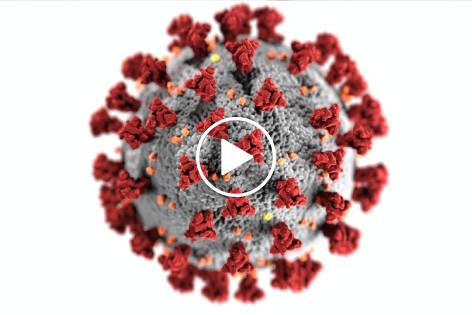
The Cholesterol Connection: How High-Cholesterol Foods May Worsen Influenza and COVID-19
Source: Journal of Immunology (May 2022)
Lifestyle Medicine Update (June 15, 2022)
Introduction:
Have you ever wondered why some people who contract the influenza virus experience only mild symptoms, while others develop life-threatening complications? The answer to this puzzling question has long eluded scientists, with factors like nutritional status, comorbidities, and immune system strength all playing a role. However, recent research published in the Journal of Immunology in May 2022 has shed new light on this phenomenon, suggesting that high cholesterol foods may be a significant factor in promoting more severe infections, particularly in the lungs.
The Connection Between High-Fat Diets and Infection Susceptibility
Previous studies have established a link between high-fat diets, elevated blood cholesterol levels, and an increased susceptibility to infections. For instance, obesity is a known risk factor for severe COVID-19 and influenza. Additionally, high serum cholesterol levels have been associated with a higher risk of sepsis in influenza infections.
A Groundbreaking Study in 2022
The study conducted in 2022 delves deeper into this connection by utilizing a mouse model. Researchers found that feeding mice a high cholesterol diet significantly increased the severity of influenza A viral infections compared to mice fed a low cholesterol diet.
The Role of Inflammatory Cytokines
The key discovery of the study was that high cholesterol foods triggered immune cells, particularly in the lungs, to overproduce inflammatory cytokines. This overproduction led to the notorious cytokine storm, a life-threatening event often observed in severe influenza and COVID-19 infections. Preventing cytokine storms has become a crucial strategy in mitigating the complications of these viral infections.
Preparing the Lungs for Disaster
Surprisingly, even before the introduction of the influenza virus, the high cholesterol diet alone induced inflammatory changes in the lungs of the mice. This suggests that a high cholesterol diet primes the lungs for an adverse reaction should a virus invade, emphasizing the importance of considering host factors in disease outcomes. In essence, our internal environment largely dictates the severity of symptoms when facing such viruses.
The Implications for Human Health
This groundbreaking research offers crucial insights into what has been observed in human cases of influenza and COVID-19. Higher blood cholesterol levels increase the risk of severe and life-threatening outcomes, as they create an internal environment conducive to more severe infections. High cholesterol foods should be avoided for various reasons, including their detrimental effects on the risk of severe infections [1].
A Multifaceted Health Issue
While high blood cholesterol is a well-known risk factor for cardiovascular disease, the leading cause of death in society, this research underscores the additional dangers of high cholesterol foods. For the sake of your overall health, it’s essential to minimize the consumption of high cholesterol foods, including:
- Egg yolks
- Organ meats (liver, kidney, brains)
- Dairy products with more than 1% milk fat (butter, cheese, ice cream, cream, sour cream, ghee)
- Red meat (beef and pork products)
- Pastries (often containing butter, cream, and/or egg yolks)
- Shellfish (in moderation)
Conclusion
The link between high cholesterol foods and the severity of viral infections, such as influenza and COVID-19, is a compelling discovery with far-reaching implications for public health. This research highlights the importance of maintaining a balanced diet and avoiding high cholesterol foods to reduce the risk of severe infections. By understanding the role of dietary choices in our health, we can take proactive steps to protect ourselves from the dangers of these life-threatening diseases.
References
- ScienceDaily. (2022, May 19). Dietary cholesterol worsens inflammation, sickness in mice with influenza. https://www.sciencedaily.com/releases/2022/05/220519164853.htm
- Louie, A. Y., Tingling, J., Dray, E., Hussain, J., McKim, D. B., Swanson, K. S., & Steelman, A. J. (2022). Dietary Cholesterol Causes Inflammatory Imbalance and Exacerbates Morbidity in Mice Infected with Influenza A Virus. Journal of Immunology. https://pubmed.ncbi.nlm.nih.gov/35577367/
Dr. Meschino

Dr. James Meschino
ABOUT THE AUTHOR
Dr. James Meschino, DC, MS, ROHP, is an educator, author, and researcher having lectured to thousands of healthcare professionals across North America. He holds a Master’s Degree in Science with specialties in human nutrition and biology and is recognized as an expert in the field of nutrition, anti-aging, fitness, and wellness as well as the author of numerous books.


